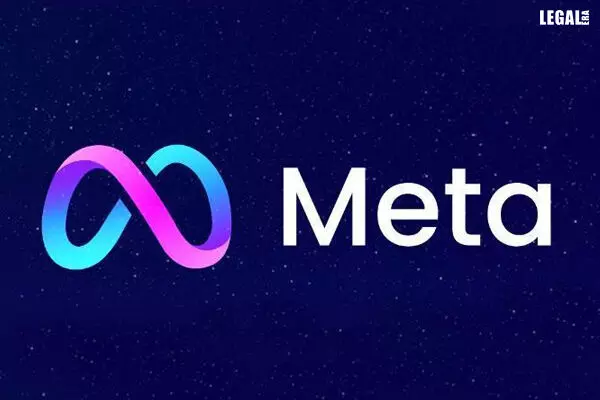- Home
- News
- Articles+
- Aerospace
- Artificial Intelligence
- Agriculture
- Alternate Dispute Resolution
- Arbitration & Mediation
- Banking and Finance
- Bankruptcy
- Book Review
- Bribery & Corruption
- Commercial Litigation
- Competition Law
- Conference Reports
- Consumer Products
- Contract
- Corporate Governance
- Corporate Law
- Covid-19
- Cryptocurrency
- Cybersecurity
- Data Protection
- Defence
- Digital Economy
- E-commerce
- Employment Law
- Energy and Natural Resources
- Entertainment and Sports Law
- Environmental Law
- Environmental, Social, and Governance
- Foreign Direct Investment
- Food and Beverage
- Gaming
- Health Care
- IBC Diaries
- In Focus
- Inclusion & Diversity
- Insurance Law
- Intellectual Property
- International Law
- IP & Tech Era
- Know the Law
- Labour Laws
- Law & Policy and Regulation
- Litigation
- Litigation Funding
- Manufacturing
- Mergers & Acquisitions
- NFTs
- Privacy
- Private Equity
- Project Finance
- Real Estate
- Risk and Compliance
- Student Corner
- Take On Board
- Tax
- Technology Media and Telecom
- Tributes
- Viewpoint
- Zoom In
- Law Firms
- In-House
- Rankings
- E-Magazine
- Legal Era TV
- Events
- Middle East
- Africa
- News
- Articles
- Aerospace
- Artificial Intelligence
- Agriculture
- Alternate Dispute Resolution
- Arbitration & Mediation
- Banking and Finance
- Bankruptcy
- Book Review
- Bribery & Corruption
- Commercial Litigation
- Competition Law
- Conference Reports
- Consumer Products
- Contract
- Corporate Governance
- Corporate Law
- Covid-19
- Cryptocurrency
- Cybersecurity
- Data Protection
- Defence
- Digital Economy
- E-commerce
- Employment Law
- Energy and Natural Resources
- Entertainment and Sports Law
- Environmental Law
- Environmental, Social, and Governance
- Foreign Direct Investment
- Food and Beverage
- Gaming
- Health Care
- IBC Diaries
- In Focus
- Inclusion & Diversity
- Insurance Law
- Intellectual Property
- International Law
- IP & Tech Era
- Know the Law
- Labour Laws
- Law & Policy and Regulation
- Litigation
- Litigation Funding
- Manufacturing
- Mergers & Acquisitions
- NFTs
- Privacy
- Private Equity
- Project Finance
- Real Estate
- Risk and Compliance
- Student Corner
- Take On Board
- Tax
- Technology Media and Telecom
- Tributes
- Viewpoint
- Zoom In
- Law Firms
- In-House
- Rankings
- E-Magazine
- Legal Era TV
- Events
- Middle East
- Africa
Australian Federal Court Imposes $14 Million Fine for Undisclosed Data Collection

Australian Federal Court Imposes $14 Million Fine for Undisclosed Data Collection
Australia’s Federal Court has ordered Meta Platforms, the parent company of Facebook, to pay fines amounting to $20 million ($14 million) for secretly collecting user data through a smartphone application that was marketed as a privacy protection tool without disclosing its data collection activities.
The app in question, known as Onavo, was a virtual private network (VPN) service offered by Facebook from early 2016 to late 2017.
VPNs are meant to safeguard internet users’ identities by providing their devices with different online addresses.
However, it was discovered that Facebook used Onavo to gather users’ location data, their online activities, and the frequency of their interactions on other apps and websites, all of which were utilized for the company’s advertising purposes.
The Australian Competition and Consumer Commission (ACCC) filed civil lawsuit against Meta and its subsidiaries, Facebook Israel and Onavo.
In addition to the fine, the Court ordered Meta to pay Australian $400,000 in legal costs to the ACCC.
Justice Wendy Abraham, the Presiding Judge over the case, emphasized that the lack of transparency by Meta may have deprived thousands of Australian consumers of the ability to make an informed choice regarding the collection and use of their data before they downloaded and used the Onavo app.
“The failure to make sufficient disclosures ... may have deprived tens of thousands of Australian consumers of the opportunity to make an informed choice about the collection and use of their data before downloading and/or using Onavo Protect,” the judge stated.
The judge further remarked that the Court could have fined Meta hundreds of billions of dollars since Australians downloaded the app 271,220 times and each breach of consumer law carried a Australian $1.1 million fine, however the Court held the contraventions to be characterized as a single course of conduct.
The fine is a part of Meta’s broader legal problems in Australia. Meta’s legal hurdles in Australia started in 2016 with the scandal of the company’s association with data analytics firm Cambridge Analytica and the US presidential election.
Additionally, an ongoing civil Court action has been taken against Meta by Australia’s Office of the Information Commissioner in relation to its dealings with Cambridge Analytica within the country.
In response to the Court’s decision, Meta issued a statement defending its position, stating that it has in recent years made significant efforts to provide users with more transparency and control over their data.
The company also pointed out that the ACCC had acknowledged that it never sought to mislead customers.



